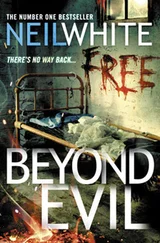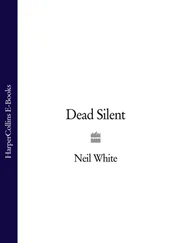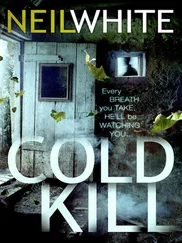‘But why her?’
Lucas's lips twitched. ‘I don't know. Why any of them?’ He straightened himself, and when he asked where it had happened he was pointed towards an old outhouse along the path. As he set off walking, he felt his trousers become damp from the trailing grasses. He swept back his thinning hair, his head golden with freckles, grey sideburns reaching down to his jaw-line.
He slowed down as he got near to the outhouse. The remains of the cat were still scattered over the path, the tiny severed head by the door, its mouth open, the sharp little teeth set in a final grimace.
He pushed at the door with a pen, careful not to leave any forensic traces, and saw the wire hanging from the latch. Just like the others, the wire led to a small metal pipe, filled with gunpowder. Once the door opened, it pulled at the wire, which set off a small blasting cap and exploded the pipe. In the other attacks, the pipe had been left on the floor. This time it had been strapped to Abigail's cat and suspended from the top of the door by a clothes line. This was more than just kids, he knew that.
He let the door close slowly as he turned away, the rusted hinges creaking, and walked back to the house, deep in thought. The constables by the door stepped aside as he went to go into the house, curious to find out more about Abigail, but he caught their exchange of glances, the raised eyebrows.
‘What is it?’ he asked.
They both looked at each other again, unsure what to say, and so Rod Lucas brushed past them and pushed at the door. It opened slowly, the interior dark, and as he peered in, his eyes adjusting to the gloom, he whistled.
‘What the hell?’ he muttered to himself, and then stepped inside.
I was heading for Sam Nixon's office, walking quickly through Blackley along the paved precinct, chain stores on one side and the entrance to an indoor mall on the other. Victorian shop-fronts used to line the street, back when the town was the glamorous big brother to Turners Fold, but the area had tried to shake off its past a few decades earlier. The modern town plan that had come along in its place looked tired already. Not many people walked the streets, just earnest young college students and shop assistants clicking their way to work in high heels.
I could see Sam watching my approach. His office was above a print shop, accessed through a glass door at the bottom of some stairs, his name spelled out in gold leaf. His clients congregated there sometimes, somewhere quiet and warm to swap dealer names, but Sam's wife, Helena, acted as the bouncer. She used to be a lawyer herself, straw-blonde with stick-thin arms and a pinched nose, but years out bringing up children and being on the wrong end of a breath test turned her against it. Instead, she managed the paperwork, the money, and allowed Sam to do the law.
I exchanged quick greetings with Helena, just a peck on the cheek. Her face was cold, her complexion pale.
‘How's business?’ I asked.
Helena grimaced. ‘Crime's no game for a sole practitioner.’
‘Not busy?’
She laughed, but it sounded bitter. ‘People through the door are not the problem. Getting a decent rate of pay for it, that's the problem.’
I didn't respond. I reckoned our views on decent pay might be different. Instead, I let Helena show me through the reception area and into Sam's office, a large room with just a chipboard desk and worn-out chairs bought in a clearance sale. The desk was busy with files, the dark blue of Blackstone's, Sam's preferred legal reference, acting as a paperweight, but the room felt bare and cold. Sam Nixon & Co. hadn't brought in enough money to think about comfort.
Sam stood up as I entered, smiling, his hand out to shake. ‘Hello Jack, good to see you.’
I shook his hand and noticed the tiredness behind his smile. Sam looked like business was tough. He wasn't much older than me, both of us moving through our mid-thirties, but his face looked filled with worry, his hair was working its way backwards quickly, and whatever was left was sprinkled with grey. He had lost weight and lines had started to appear around his eyes.
Sam Nixon fed me stories, often just a nod as he came into court, a tip that a case was worth hanging around for. My write-ups shamed his clients, but it kept his name in the paper and a steady footfall through his door. For me, it was my job. For Sam, it was free publicity.
‘How's Laura?’ he asked.
‘She's on CRT.’
‘Good hours for the family,’ said Sam, nodding his approval.
I smiled, played the happy boyfriend for a moment, aware that there were other people in the room.
Laura was a detective on the Custody Reception Team at Blackley Police, who dealt with the overnighters, the burglars and the domestic bullies. The nightshift officers would be long gone to their beds, leaving behind a disgruntled prisoner and a bundle of paperwork, and Laura's team had to sort it out. It gave her regular hours, but it meant she spent most days interviewing hostile prisoners in the belly of the old police station, where the smell of the cells, sweat and vomit, seeped into her clothes.
I was suspicious of Sam. If a criminal lawyer asked me first about the welfare of my detective girlfriend, I assumed that he didn't want her around.
‘You know what Blackley is like,’ I said. ‘It's full of criminals. They keep her busy.’
‘Blame it on the lawyers for setting them free,’ Sam replied.
As he was talking, I turned towards the other people in the room, a middle-aged couple perched uncomfortably on chairs. I recognised them immediately. Their faces had filled the local news for the last week. I looked back at Sam, who seemed nervous now.
‘Jack, this is Ray and Lucy Goode,’ he said.
I smiled a polite greeting, but I knew who they were. Their daughter had made the headlines, a pretty young teacher, the photograph from the school prospectus showing her with straight auburn hair and freckles like splashes. Sarah had a boyfriend, Luke, a fitness instructor at her gym. It was normal girl-boy stuff, until Luke had been stabbed to death in her bed a week earlier and Sarah had disappeared.
It had played out in the local paper for a few days, had even brushed the nationals, but the television got the best angle – the news conferences, Mr and Mrs Goode tearful and scared, begging for Sarah to come home – but then it went quiet when there was nothing new to report. I'd guessed the subtext: it was officially a missing persons investigation, but, for the police, Sarah Goode was a murderer on the run.
‘This is Jack Garrett,’ Sam said. ‘Our local hotshot reporter.’ When I didn't respond, he added, ‘They want to speak to you. Is that okay?’
I nodded at them politely, but then I asked Sam, ‘Why me?’
Sam looked embarrassed. ‘It's probably for the best if they tell you about it.’ He went towards the door. ‘I'll be in the next room if you need me.’
I watched him go, surprised, and wondered why he didn't want to be a part of it. When the door clicked shut, Sam left behind an uncomfortable silence, broken only by the ticking clock on the wall and the creaks of the chairs as Mr and Mrs Goode shuffled nervously.
I tried to weigh them up. They were in their fifties. She was in a blue suit, knee-length skirt and blazer, navy blue with gold buttons, her hair in tight grey curls. He looked uncomfortable in a dated brown suit, as if he hadn't worn one for a long time, and I could see the shirt collar digging into his neck. His sandy hair had receded to just wisps of a comb-over.
‘This is about Sarah, I presume?’ I said.
They glanced at each other, and I saw a nod, a look of comfort. It was Mrs Goode who took the lead.
Читать дальше











